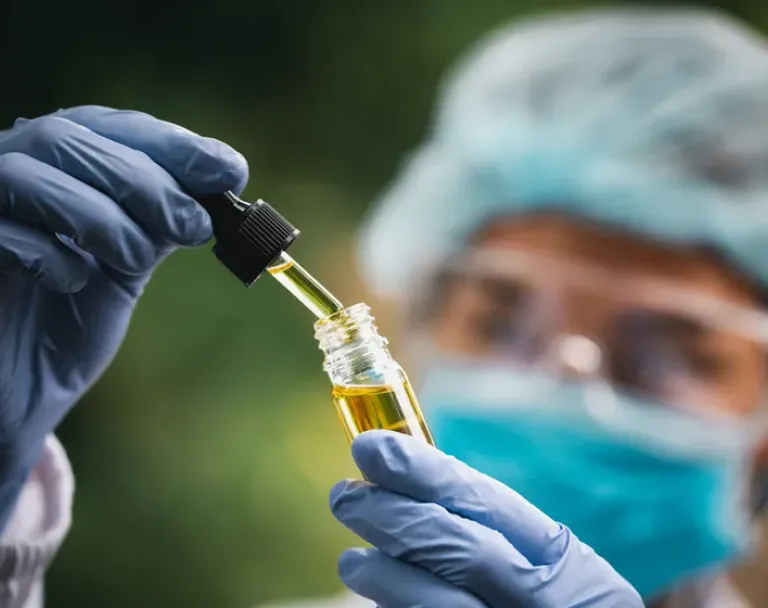
What is an extraction technician? How can you turn cannabis extraction training into a career?
What is an extraction technician? How can you turn cannabis extraction training into a career?
Experts trained in the extraction and analysis of plant chemicals are an essential part of the exciting cannabis industry.
Jobs such as cannabis chemist and cannabis extraction technician are necessary for purity and quality analysis, federal and state regulatory compliance testing, and many aspects of the business and product development process of plant chemical products.
If you want to harness your love of science to work in the cannabis industry, becoming a cannabis extraction technician or extraction chemist can get you into the lab and working hands-on with chemical compounds such as cannabinoids and terpenes. Training in laboratory practices and extraction equipment moves you closer to a fulfilling career in many fields, from medical cannabis to food and drug analysis.
Cannabis Extraction Technician Job Description
Cannabis extraction technicians and entry-level chemists assist senior chemists or directors of extraction with isolating chemical compounds from organic material and testing them for potency, purity, and other characteristics in compliance with local regulations. Extraction chemists also record and manage this data and may participate in product packaging and labeling.
Extraction technicians and chemists work in laboratories conducting analysis and testing. Entry-level positions are often found with private medical marijuana companies and dispensaries in areas where medical cannabis is legal.
To become an extraction technician in the cannabis industry, you’ll need prior laboratory experience with plant chemical extraction equipment and methodology. Other essential skills include lab procedure and maintenance knowledge and the ability to handle and measure materials effectively and accurately throughout the extraction process.
In most states, medical cannabis extraction technicians need to be over the age of 21, hold a dispensary agent or similar work license, undergo fingerprinting and a background check, and be able to perform physical tasks like standing for long periods and carrying up to 50 pounds. Demonstrating high-level chemical training with a degree in the field can expand your career opportunities in cannabis indusry labs.
Extraction Technician Salary
According to Indeed.com, the average annual base salary for extraction technicians in the United States is $42,549.
Possible salary levels for cannabis industry extraction technicians vary based on the employee’s location, education level, and experience. Academic credentials and prior laboratory work can elevate the salary for entry-level extraction technicians.
Trained extraction technicians may advance to higher-paid positions in the laboratory after working professionally in the field for a few years, becoming an extraction chemist, extraction supervisor or cannabis lab manager. Research from Salary.com indicates cannabis lab managers earn an average annual base salary of $65,030. Compensation is even greater for extraction production facility owners and operators, a role where essential cannabis science knowledge and experience are a definite plus.
How to Become an Extraction Technician
A Bachelor of Science (B.S.) college degree program combined with specialized extraction lab experience is the ideal pathway to become a superior extraction chemist job candidate in the growing cannabis industry. Entry-level technician roles may require lower levels of training.
Bachelor’s degree programs in plant extraction chemistry help build the organizational, critical thinking, and data analysis skills necessary to effectively compare and refine plant chemicals in a commercial laboratory setting. One program specifically designed to provide training and experience in cannabis extraction is York College of Pennsylvania’s B.S. in Cannabinoid Chemistry.
Other requirements include pursuing registration or certification of your work eligibility with the state in the form of a license or agent card.
Steps to Become a Cannabis Extraction Technician or Chemist
- Earn a bachelor’s degree in chemistry, plant chemistry, extraction chemistry, or a related field.
- Gain laboratory experience in higher education or work setting.
- Complete the process for necessary professional licensure (varies from state to state).
Advance in the Cannabis Industry
Industry-specific experience and academic training fuel job advancement up the ladder in the laboratory as well as provide a foundation for pursuing further education or roles in the business or compliance side of the cannabis and plant chemical industries.
The general education and professional communication skills gained in a bachelor’s degree program elevate technical and scientific extraction skills. Holding a master’s degree in science or another field can be the next step to becoming a more influential member of your lab team or endeavoring to start or manage your own business in the cannabis extraction field.
Bachelor’s programs in cannabis-specific disciplines are emerging at colleges and universities across the country. As they become more common, college credentials are sure to become a standard of excellence in the cannabis industry. Especially in the science side of the field, attaining positions such as cannabis chemist, scientist or director of extraction may require formal academic training at both the undergraduate and graduate levels.
More Careers to Pursue with Cannabis Extraction Training
Individuals trained in plant chemical extraction aren’t limited to working with companies in the cannabis industry. Cannabis extraction technicians perform related scientific tasks and use similar equipment as extraction technicians in several industries, making their skills extremely salient to opportunities in other fields throughout their careers.
Agricultural, Food, and Beverage Chemistry
Extraction chemistry careers exist in food and beverage quality control, providing job opportunities in agricultural businesses, government agencies, and even commercial settings such as breweries, which employ extraction technicians for hops analysis.
This also includes the kind of extraction and analysis needed for wellness industries. For example, training in plant chemical extraction and analysis is common in essential oil production facilities.
Pharmacology
Extraction technicians may find work testing the chemical makeup of plants used in the production of pharmaceutical drugs and analyzing their properties to inform how they interact with human systems.
Toxicology
Toxicology laboratories can be private or part of local criminal justice and law enforcement institutions. If you’re trained as an extraction technician, your knowledge of chemical extraction, isolation, and testing equipment improves your career potential for entry-level technician roles in this area.
Forensic Chemistry
Basic education in cannabis extraction technology can be a stepping stone to further training and career advancement in forensic science and forensic chemistry fields.
Explore Extraction Technician Training and Education
Now that you are familiar with what a cannabis extraction technician is and what they do to help the cannabis industry run safely, smoothly, and effectively, it’s time to distinguish yourself with exceptional hands-on chemical and instrumentation training in the field.
Pursue extraction chemistry careers in the cannabis industry and beyond, honing your scientific interests and demonstrating your dedication to this emerging career pathway.



